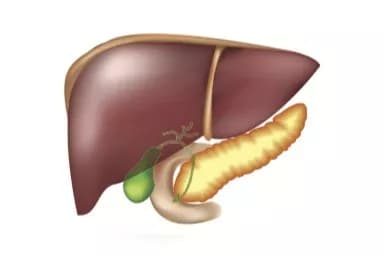
Potential Treatment Approach For Glycogen Storage Disease
Researchers from the Duke-NUS Graduate Medical School Singapore (Duke-NUS) and Duke Medicine have identified a potential treatment strategy for an often-fatal inherited glycogen storage disease.
E-published ahead of print recently in the Journal of Hepatology, the study provides much-needed hope for the management of glycogen storage disease Ia, known as GSDIa or von Gierke disease, a genetic metabolic disorder that requires lifelong dietary therapy.
Patients with the disorder lack the enzyme that enables their livers to convert a glucose precursor to glucose during fasting conditions. Without release of glucose from the liver into the bloodstream, patients develop an extremely low blood sugar level that can lead to seizures, coma and death.
To manage the condition, patients eat frequently and consume raw cornstarch on a strict schedule. But the inability of the liver to produce glucose results in an over-accumulation of glycogen and fat in the liver, which contributes to an enlarged and fatty liver. Eventually, many patients with GSDIa develop liver tumors and renal failure, and often die in early adulthood.
"GSDIa is a devastating disease," said senior author Paul Yen, M.D., of the Cardiovascular and Metabolic Disorders Programme at Duke-NUS. "Diet management is currently the only way to manage the disease, but it cannot prevent the more complex symptoms of the disorder related to organ failure."
Identifying the urgent need for alternative therapeutic strategies, Yen and colleagues collaborated with GSDIa expert Dwight Koeberl, M.D., Ph.D., a professor in the departments of Pediatrics and Molecular Genetics and Microbiology at Duke University School of Medicine.
The international research team found that autophagy was impaired in animal liver cells modelled on GSDIa. Autophagy is a process in which a damaged cell degrades into its basic components and recycles itself for use by other cells. Impaired autophagy contributed to the pathology of GSDIa by disrupting fat metabolism that would otherwise aid the breakdown of fat stored in the liver. This disruption led to high fat levels, which would eventually cause fatty liver.
With these findings, the team induced autophagy in cell and animal models and saw reductions in fat and glycogen levels. A drug commonly prescribed to prevent transplant rejection -- rapamycin -- stimulated autophagy and improved liver size and function in animal models.
"By inducing autophagy, we are able to provide an alternate pathway for glycogen to be broken down into glucose," said Benjamin Farah, first author of the study and a Duke-NUS M.D./Ph.D. student. "Activators of the autophagy pathway could be useful for treating GSDIa and other metabolic disease with fatty liver, without relying on the missing enzyme."
"I've been working with GSDIa patients throughout my career and have seen first-hand how difficult it is to manage," Koeberl said. "At Duke, we've been working on gene therapies to target the missing enzyme, but I'm excited about the alternate treatment strategy that these findings offer. The possibility of using other approved drugs to develop therapeutic strategies to treat GSDIa gives us a more immediate solution."
The next step before the findings can be clinically applied is to conduct studies in animals using similar drugs, and determine the most effective drug therapy with the least side effects. The teams at Duke-NUS and Duke University plan to continue their collaboration to pursue this approach.
The above post is a redistributed news release provided by Duke University Medical Center. Note: Materials may be edited for content and length.
Disclaimer: DoveMed is not responsible for the adapted accuracy of news releases posted to DoveMed by contributing universities and institutions.
Primary Resource:
Farah, B. L., Landau, D. J., Sinha, R. A., Brooks, E. D., Wu, Y., Fung, S. Y. S., ... & Yen, P. M. (2015). Induction of autophagy improves hepatic lipid metabolism in glucose-6-phosphatase deficiency. Journal of hepatology.
Related Articles
Test Your Knowledge
Asked by users
Related Centers
Related Specialties
Related Physicians
Related Procedures
Related Resources
Join DoveHubs
and connect with fellow professionals

0 Comments
Please log in to post a comment.